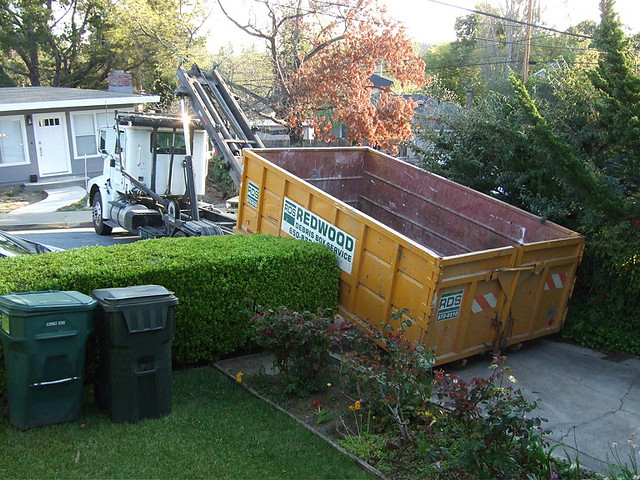New Hampshire Dumpster Laws: The Quick Guide
Are you renting a dumpster for a project in New Hampshire, but not sure where to start? Here’s a quick overview of what you need to know, and who to call.
First, you need to know the state laws. New Hampshire law dictates that each town has to provide a facility for the recycling and disposal of solid waste, or access to a solid waste facility. In other words, the town dump. It also states that the board of health can have the permits for any “nuisance” to the public health revoked at any time, so you need to keep your dumpster relatively clean.
There are also specific rules about what you can put in a dumpster. New Hampshire’s standing law is that solid waste needs, as much as possible, to be recycled or otherwise made use of instead of just thrown out. Organic matter such as manure, for example, can only be placed in a container and moved without a permit if you’re going to be using it for fertilizer on your own property. Electronic waste like computers and televisions will need to be taken to facilities to be recycled, and the same is true of most other materials. Toxic materials such as batteries, or items that may potentially leak toxic chemicals, are dealt with by entirely different sections of the law. Attempting to throw items like this out privately is not recommended and you should call the state directly to deal with a situation along these lines.
Beyond that, however, is where it gets a little more complicated. There are no state-wide statutes that apply to dumpsters specifically; provided you comply with public health concerns and truck the materials you put in the dumpster to a proper point of disposal, the state could not care less where you put the dumpster, how big it is, or how you use it. That job falls to the individual towns that make up the Granite State.
Before renting any dumpster, you need to call your town’s Public Works department directly and discuss with them what you’re throwing out, when you’re throwing it out, and where you’re putting your dumpster. For example, some towns, like Manchester, don’t require a permit for the dumpster, but if you need to put the dumpster on a sidewalk, you will be required to get an encumbrance permit, which requires you to sketch out just how traffic on the sidewalk or road will be blocked, and you’ll also be required to inform the police, the fire department and the Manchester Transit Authority if your dumpster is along a bus route.
Even if you aren’t required to get a permit to put a dumpster on your property in your town, and quite a few may simply not have a law about it on the books, it’s still a good idea to contact the town government and inform them of what you’re planning to do. That way, you can head off potential problems at the pass instead of when you have a dumpster on your property. Also inform your neighbors as a general courtesy.
In summary, call your town’s public works department, and use your common sense when throwing things out; with those two items to guide you, renting a dumpster in New Hampshire will be smooth sailing.


